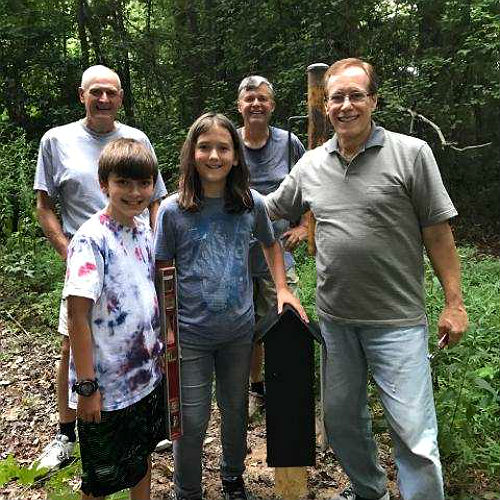
Agronomy teams blend peak course conditions with sustainable practices
Governing nearly 2,000 acres of greenspace across three states, McConnell Golf takes its impact on the environment seriously. While striking the perfect balance between pure course conditions for golfers and sustainable environmental practices for the planet takes years of effort, agronomy teams have dutifully accepted the challenge. Let’s catch up on their latest efforts.
High Standards
As far as eco-friendly golf courses go, the Audubon Cooperative Sanctuary Program (ACSP) is the Holy Grail.
The award-winning environmental education and certification program helps courses protect the environment and preserve the natural heritage of the game. The program aims to enhance valuable natural areas and wildlife habitats surrounding golf courses in order to improve efficiency and minimize potentially harmful practices.
Achieving Audubon certification can also gain golf courses and clubs recognition for their efforts toward saving the planet. Membership in the ACSP has grown steadily since the program began in 1991 - bolstered by collaborative efforts with the United States Golf Association (USGA) – and now includes more than 2,300 golf courses in the United States and three dozen countries worldwide.
The ACSP assists each participating golf course in taking stock of its environmental resources and any potential liabilities, then develops a plan that fits the course’s unique setting, goals, staff, budget and time. The path to certification encompasses six key components:
• Environmental planning
• Wildlife and habitat management
• Chemical use reduction and safety
• Water conservation
• Water quality management
• Outreach and education
McConnell Golf Director of Agronomy Michael Shoun says achieving Audubon certification is an involved process that demonstrates an organization’s leadership, commitment and high standards of environmental management. Once a course’s unique plan is implemented and the results carefully documented, Audubon International staff visit the property to ensure compliance. Recertification is required every three years to maintain the Certified Sanctuary designation.
Among the McConnell Golf stable of golf courses, The Country Club at Wakefield Plantation is Audubon certified, while Sedgefield Country Club and The Reserve Golf Club are several years into the process, and Old North State Club on Badin Lake has taken steps to renew its certification.
At Old North State Club, a group of volunteers has been focusing on some large, winged pollinators.
In Our Own Backyard
As part of the Audubon Society’s Backyard Habitat Program, birdhouses and bat boxes were first installed throughout the Badin Lake community in 1993. Although these initial 90 man-made habitats eventually slid into disrepair, Uwharrie Point residents Larry Ingold and John Ratliff have been leading an effort to revitalize the program. Over the past two years, volunteers have teamed with Old North State Club Superintendent Chris Chapman to add 21 new structures to the 28 original that could be salvaged. The team currently monitors 19 bat boxes, 13 purple martin houses, 32 wood duck boxes, and 78 bluebird houses.
Many of the structures are visible from the golf course and clubhouse – which extends benefits beyond the wildlife when it comes to their primary food source.
“Bats and purple martins are known for eating mosquitoes and other nuisance insects,” Shoun said. “Being on Badin Lake, it’s a great location for them. Hopefully we’ll see some results where you can go outside without being eaten up by mosquitoes.
Worldwide, the pollinating efforts of bats, birds, bees and insects such as monarchs is worth an estimated $100 billion per year in crop yields according to the International Union for Conservation of Nature. However impactful the efforts of McConnell Golf are to aide local ecosystems and bolster the beauty and enjoyment of its courses, it is but one small part in the overall health of the planet. Perhaps the lesson learned here, in helping to re-establish pollinators, is that every little bit counts.
